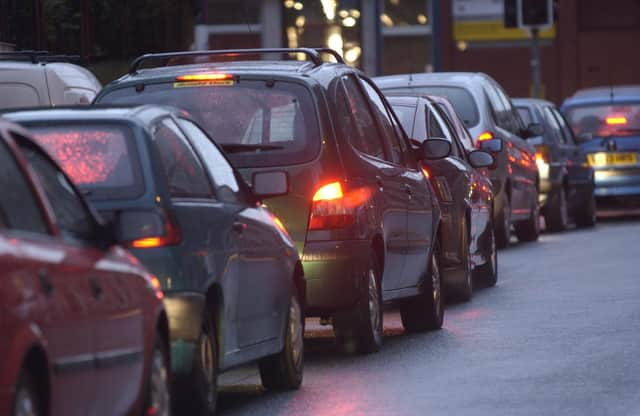UN climate change summit in Glasgow just might change people's travel habits even if Covid didn't – Alastair Dalton


Since before the first lockdown in March, the issue has come to dominate my Inside Transport musings with the Covid pandemic triggering fundamental changes in the way we get about.
Transport Scotland figures for the week before Christmas showed rail trips still 80 per cent down on a year ago, plane journeys down by 65 per cent, free bus travel – the most easily measured – reduced by 50 per cent and ferry trips down by 40 per cent.
Advertisement
Hide AdAdvertisement
Hide AdHowever, walking was also down, by 40 per cent, and cycling by 10 per cent.
But perhaps predictably, considering concern about catching the virus in addition to the cold weather, driving saw among the smallest reductions on last year – 20 per cent.
My personal travel has pretty much reflected this.
I haven’t been on a train, which I previously used for most work travel, since March, and working from home has meant I’m no longer commuting by bike.
Likewise, despite getting out for a daily stroll before work instead, I’m probably walking much less overall, and communicating with people by email, phone and video calls rather than meeting them at coffee shops, offices and events.
I recall giving a presentation to a Rail Freight Group conference in early March when we were just starting to get nervous about shaking hands, but had yet to begin social distancing.
But I’d never have guessed that eight months later, I’d be interviewing Transport Secretary Michael Matheson at an SNP conference fringe event not face to face but virtually, webcast from my son’s room.
I’ve still had the privilege in 2020 of trying out innovative forms of transport for the first time, driving a hydrogen-powered car in Aberdeen pre-lockdown in February, and riding an electric scooter round our Glasgow office car park in December.
There are likely to be more of these to come in 2021, such as the delayed trial of an autonomous bus over the Forth Road Bridge that was originally planned for around now.
Advertisement
Hide AdAdvertisement
Hide AdI might even get a chance to experience the UK’s first underground trains that will operate with no staff on board, although their introduction on the Glasgow Subway – which will celebrate its 125th birthday in December 2021 – has been delayed until 2022.
But as far as the wider travel outlook is concerned, I remain optimistic that you’ll be able to answer the question I posed at the beginning of 2020 in a positive way during the coming year – if you haven’t reduced your carbon footprint already.
The reason is the United Nations Cop26 (Conference of the Parties) climate change conference, which is now due to take place in Glasgow in November.
In fact, for now, it doesn’t actually matter whether the event is postponed again because everyone has already started jumping on the bandwagon – in a good way.
Expect the virtuous pledges to cut emissions to increase over the coming months so that by the time world leaders arrive here, drivers will be self conscious at making any but the most essential trips.
A message from the Editor:
Thank you for reading this article.
We're more reliant on your support than ever as the shift in consumer habits brought about by coronavirus impacts our advertisers.
If you haven't already, please consider supporting our trusted, fact-checked journalism by taking out a digital subscription.
Comments
Want to join the conversation? Please or to comment on this article.
